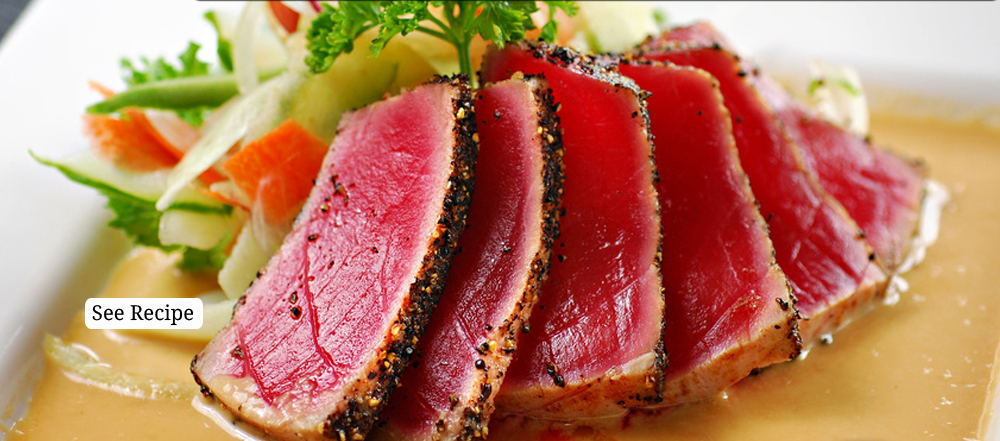How to Become a Great Cook
I’ve loved to cook from a very young age- luckily I had parents that encouraged my desire to be in the kitchen. I started with the basics- eggs, pancakes, and grilled cheese sandwiches. Simple fried eggs were mastered first- my folks had an ingenious way of making sunny-side up eggs perfectly. First, a small amount of butter was placed in the bottom of a non-stick pan. Eggs were carefully cracked on the edge of the pan and the raw protein would flawlessly ease onto the hot surface. The albumin (the white portion of the egg) would go from clear, to translucent, and ultimately a solid white. The orange yolk was still relatively raw at this point- to remedy this a small amount of water (a tablespoon or so) was added to the hot skillet. Small beads of water danced in the pan and viola, steam was created. A small lid was placed over the eggs, and within a few seconds the scorching water perfectly cooked the yolks. The results were impeccably cooked eggs with a permeable, custard-like yolk.
During my egg experiments I broke many a yolk… my parents would simply say, “Try again.” Finally, after a few hundred eggs, I was able to, on a consistent basis, make sunny-side up eggs.
In the years that followed, my experiments grew in complexity. I learned how to braise, sauté, pan-fry, bake, and fry. When I first began to cook fowl, many of my baked chickens were served partially raw and flavorless. Further experimentation yielded more favorable results. I realized that stuffing the bird with mire poix, (along with fresh citrus and plenty of salt and pepper) yielded a tasty, moist piece of meat. More importantly I began to pay attention to temperature- 165 degrees was the magic number- anything hotter than that would result in moist-free chicken. Also of great importance was letting the cooked poultry sit for at least fifteen minutes allowing the fat within the meat to become viscous, and not escape when the chicken was carved.
After becoming comfortable with the various cooking techniques, I moved onto baking. Baking is much different than traditional cooking in that precise measurements are required to be successful. Pie crusts were my nemesis- no matter how hard I tried, or what technique I implemented, my crusts sucked. Finally, a tip from my sister solved the problem and I was able to make a flakey, sweet crust (I may share the tip in a future post). Breads were next- after understanding how to properly feed the yeast, anything was possible- I made honey whole wheat, molasses, 6-grain, and French bread. The kneading of the dough was therapeutic- the smell of the bread as it was proofing and baking was intoxicating. My intention was always to make my breads as an accompaniment, but I inevitably ended up eating the loaf for dinner- all that was needed was some soft butter and warm honey.
Early in my career when mistakes were made, I was extremely hard on myself- I often lost my temper, and was even known to throw pans and other food objects around the kitchen. Slowly, I began to look at each cooking disappointment as a learning experience. My short ribs burned in the oven? I probably used too much sugar. If my bread didn’t rise, I most likely killed the yeast by using hot water instead of warm.
My main problem at this point is being overly self-critical… it’s my Achilles’ heel. People tell me over and over again, “Don’t be so hard on yourself…”
One of the most important lessons I’ve come to realize at this stage of my life is that learning is a continual, never-ending process. Regardless of what you do professionally, give yourself permission to make mistakes. Don’t call these errors failures (self-talk is important) see them as opportunities to continue your education.
Regardless of your chosen profession, mistakes are inevitable. Just the other day I was making eggs for breakfast- my yolks broke in the pan. I was immediately transported back to my childhood. Instead of getting frustrated, I continued to cook the imperfect eggs- they tasted just fine.
Chef Chuck Kerber
chuck@cooksandeats.com
cooksandeats.com







 in <b>/var/www/vhosts/cooksandeats.com/httpdocs/wp-content/themes/CooksandEats/sidebar.php</b> on line <b>1</b><br />
/wp-content/themes/CooksandEats/images/side-logo.png)



 in <b>/var/www/vhosts/cooksandeats.com/httpdocs/wp-content/themes/CooksandEats/footer.php</b> on line <b>13</b><br />
/wp-content/themes/CooksandEats/images/back-to-top.png)
What a great piece! Thank you!